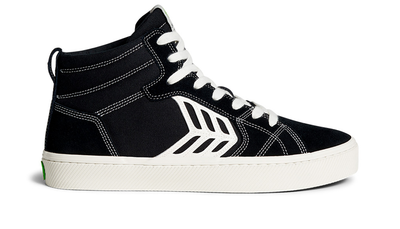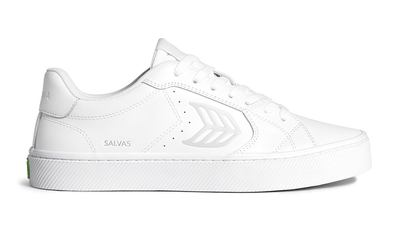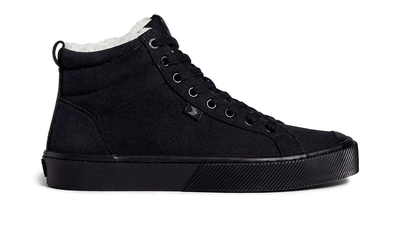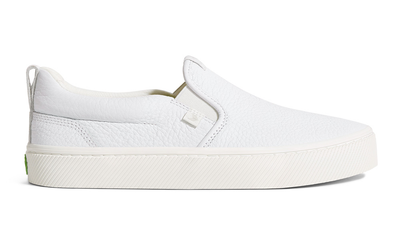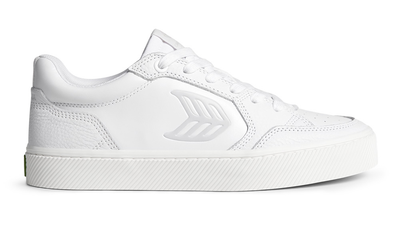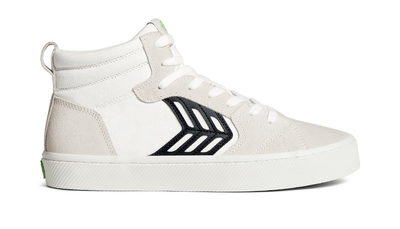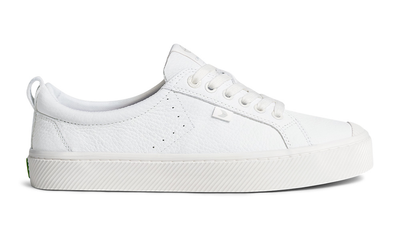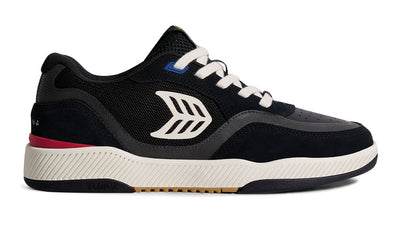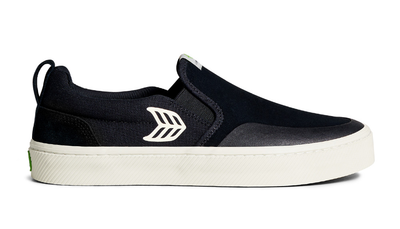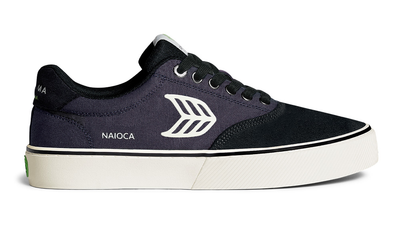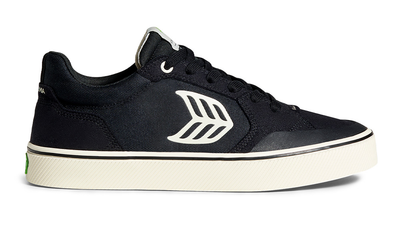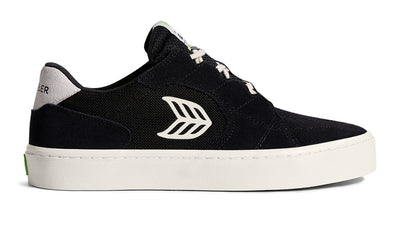Step Into Sustainability: Understanding What Makes a Sneaker Brand Truly Sustainable
In a world increasingly aware of environmental issues, the concept of sustainable fashion has become critical in our purchasing decisions. When it comes to footwear, the sneaker industry is not just about style and comfort; it also has a significant impact on sustainability. We, as eco-conscious consumers, must be informed about what makes a sneaker brand sustainable. Let’s dive into the essential features that define sustainable sneaker companies and how our products at Cariuma embody these principles.
The Fabric of Sustainability: Materials That Matter
When assessing sneaker brands for their sustainability credentials, the primary consideration should be the materials they use. Sustainable brands often source eco-friendly materials that minimize environmental impact, such as organic cotton, recycled plastics, and natural rubber. Here are a few core materials that sustainable sneaker brands focus on:
- Organic Cotton: Grown without the use of synthetic pesticides and fertilizers, organic cotton is not only better for the environment but also for the farmers who cultivate it.
- Recycled Materials: These are often derived from post-consumer products, such as plastic bottles, reducing waste and energy consumption.
- Natural Rubber: Sourced responsibly, natural rubber breaks down more easily than synthetic alternatives and is harvested in a way that doesn’t destroy local ecosystems.
By prioritizing eco-friendly materials, we reduce the carbon footprint associated with sneaker production. The following table highlights the environmental benefit of using various sustainable materials:
| Material | Environmental Impact | Benefit |
|---|---|---|
| Organic Cotton | No synthetic chemicals | Healthier ecosystems |
| Recycled Plastics | Reduces waste in landfills | Lowers dependence on virgin plastic |
| Natural Rubber | Sustainable sourcing | Biodegradable |
Through our offerings like OCA Low Leather Sneakers and Salvas Leather Women, we exemplify the commitment to using sustainable materials without compromising style or comfort.
Ethical Manufacturing: The Heart of Sustainability
Sustainable fashion isn’t just about the materials; it also encompasses how those materials are produced. Ethical manufacturing practices are crucial in ensuring that workers are treated with respect and fairness. This includes paying fair wages, providing safe working conditions, and reducing waste in the production process. We can assess a brand’s commitment to ethical practices by looking for the following:
- Fair Labor Practices: Sustainable sneaker brands prioritize fair wages and working hours for their employees.
- Transparency: Brands should openly share information about their sourcing and production processes.
- Eco-Friendly Production Techniques: From reducing water usage to investing in renewable energy, eco-friendly production methods limit detrimental effects on the planet.
Here’s a list of additional ethical practices to look for:
- Use of minimal packaging.
- Investments in local communities.
- Quality over quantity in output.
When we put ethical manufacturing into practice, it not only empowers workers but also enhances a brand’s overall sustainability claim. Our sneakers, including the CATIBA PRO Low Men and CATIBA PRO Low Women, embody this commitment, ensuring that every step taken is a step towards global betterment.
Style Meets Sustainability: Design and Innovation
While materials and manufacturing practices set the stage, design and innovation can leave a lasting impression. Sustainable sneaker brands embrace styles that are both timeless and functional, which encourages consumers to invest in quality over quantity. Here’s how design and innovation play into sustainability:
- Timeless Design: Shoes designed for longevity can prevent over-consumption. Stylish sneakers that transcend seasons encourage customers to keep their footwear for longer.
- Comfort and Functionality: When sneakers are comfortable and versatile, people are less likely to purchase multiple pairs, reducing waste.
To foster sustainability, brands can also leverage innovations such as:
- Modular Design: Breathable materials can be used for various weather conditions, eliminating the need for multiple shoes.
- Upcycling Programs: Encouraging customers to return worn-out sneakers for recycling or repurposing.
With our innovative designs like the OCA THERMA High Women and Ibira Men, we ensure that sustainability meets style, making it easier for consumers to choose eco-friendly fashion.
Measuring Up: The Importance of Certifications and Reviews
Sustainable sneaker brands often obtain certifications to validate their eco-credentials. Certifications from reputable organizations add credibility and can guide consumers in making informed choices. Here's a brief overview of useful certifications to consider:
- Global Organic Textile Standard (GOTS): Ensures textiles are organic and adhere to strict environmental and social criteria.
- OEKO-TEX® Standard: Certifies that textiles are free from harmful substances.
- Fair Trade Certified: Ensures fair labor practices and sustainable maintenance in supply chains.
Brand reviews and customer testimonials can also provide insights into a brand's performance in sustainability. When researching sneakers, consider the following:
- Look for Transparency: Brands that openly share their sustainability efforts tend to back them up with results.
- Customer Feedback: Positive reviews can indicate that a brand genuinely cares about its ethical commitments.
Incorporating this knowledge can fundamentally shift how we perceive sneaker brands, allowing us to support those that prioritize sustainability. Our dedication to transparency and ethical practices is evident in the quality of sneakers like Ibira Women and the CATIBA PRO Low Men.
Join the Journey: Embrace Your Role in Sustainable Fashion
Buying sustainable sneakers is just one part of a much larger puzzle. As conscious consumers, our choices impact the wider world, so it’s vital to understand our role in promoting sustainable fashion. Consider these actionable steps to further embrace your commitment to sustainability:
- Educate Yourself: Learn about sustainable materials and ethical production methods.
- Support Sustainable Brands: Choose to buy from companies that focus on environmental impact.
- Spread the Word: Encourage others to consider sustainability in their fashion choices.
By making informed choices, we fuel demand for sustainable practices in the footwear industry. Our offerings, like the OCA THERMA High Men and Salvas Leather Men, are perfect examples of how our commitment to sustainability drives change.
Every Step Counts: Reflecting on the Sustainable Sneaker Landscape
In a world driven by the quest for sustainability, understanding what makes a sneaker brand eco-friendly is critical. With a focus on ethical practices, eco-friendly materials, thoughtful design, and transparent certifications, consumers can arm themselves with the knowledge to make impactful decisions. We must continue to support brands, including our own at Cariuma, that uphold sustainable values, solidifying their place in our closets.
By stepping up our awareness and choices, we contribute to a fashion industry that prioritizes ethical production and environmental conservation. Imagine the collective impact of consumers like us choosing sustainability; it’s not just a direct benefit to the planet but also a message to the industry that green is the new black. Together, we are not just buying sneakers; we are walking toward a better world.
Discover our sustainable footwear offerings and take a step towards a greener future!
















